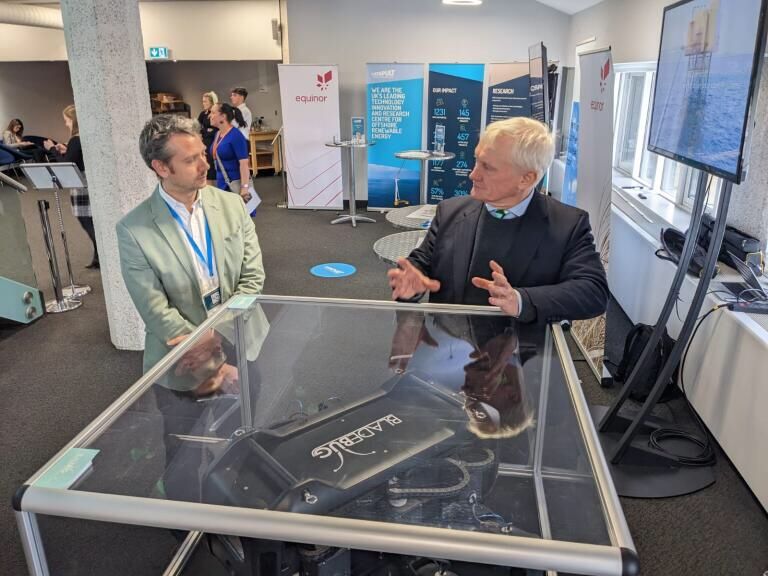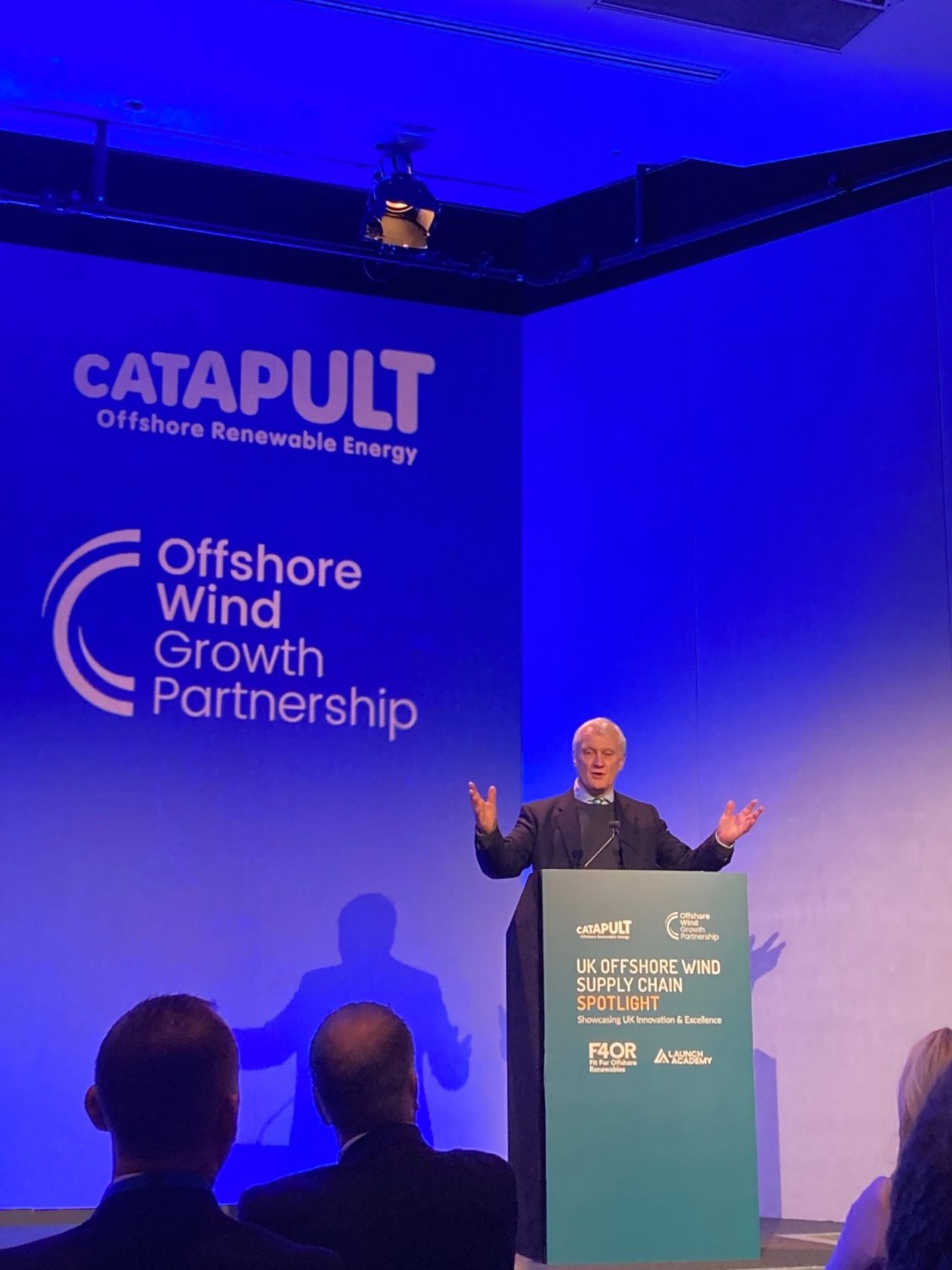Why 2023 is Set to be a Year of Innovation in Offshore Wind Generation
As policymakers face up to the twin challenges of net zero and energy security, the UK’s offshore wind sector is poised to step up and play an even bigger role in the energy transition. We spoke to a number of those leading the charge to discover why 2023 is set to be a year of innovation in the industry.
2022 was a year when the issue of long-term energy security moved firmly into the public’s consciousness. No longer a theoretical future risk, spiralling energy costs have propelled debates about the nation’s future energy mix to the forefront of the minds of the public and policymakers alike.
Within the context of the energy crisis, the innovations taking place throughout the nation’s offshore wind sector has led to it rapidly expanding its importance to the UK’s energy mix. On average, wind power now accounts for around a quarter of the UK electricity supply, with the majority of that electricity coming from offshore wind generation, and that figure is set to go up dramatically in the coming years.
"Offshore wind is already playing a key role in our transition to energy security,” Minister of State for Energy and Climate, Graham Stuart, explains to The House. “With government and industry working together, Britain can continue to lead the world in delivering clean and secure energy, helping us reach net zero, create jobs, and bringing down consumer bills in the process."
However, as we move into 2023, industry experts are warning that delivering the vision Stuart sets out will require action from a range of stakeholders to build upon the foundations that have made the UK a world leader in offshore wind.
In 2022, recognising that more could be done to accelerate transition and ensure UK supply chain growth, Government appointed Tim Pick as the UK’s Offshore Wind Champion. Pick co-chairs the Government’s Offshore Wind Acceleration Task-force (OWAT) where he works with leaders from industry and government, to spearhead the acceleration of new offshore wind projects around the UK, providing a forensic focus on challenges and solutions in areas such as consenting, grid and supply chain.
Following extensive engagement with industry and hundreds of stakeholders throughout the supply chain, Pick recognises the huge successes we’ve seen to date, whilst also noting that there is more that can be done to seize the opportunity in full.
“Grid connections are effectively the rate-limiter for offshore wind deployment. We need to accelerate build out of the Holistic Network Design, and give confidence to developers and other stakeholders that new offshore wind farm sites will be connected promptly. That programme of works by itself also creates a huge opportunity for supply chain businesses.”
“We also need to look at our auction processes and tweak them to better incentivise supply chain development and security in an increasingly stretched and competitive European and global market. Well-designed, non-price criteria have the potential to drive meaningful and welcome change.”
Getting the balance right between reducing energy costs to the consumer whilst also ensuring that the industry has the right framework to enable and encourage innovation and UK supply chain growth is key and, as Pick explains, “Success here means a proper levelling up in terms of new, high quality jobs in former industrial and coastal communities.
“The industrialisation of floating offshore wind in particular presents us with an opportunity to do things a little differently: we should not repeat what we have done for fixed bottom offshore wind to date and expect a completely different outcome for the UK supply chain.”
One Industry leader with whom Pick has worked closely in the past year is Andrew Jamieson, CEO of the Offshore Renewable Energy (ORE) Catapult. The Catapult supports businesses working in the offshore wind industry, and celebrates its 10 year anniversary in 2023. He is convinced that a further step change in the sector is needed to deliver economic as well as environmental benefits to the nation. He points to work already underway to build the skills pipeline and grow the base of suppliers connected to offshore renewable energy.
Whilst rightly proud of the progress to date, Jamieson is clear that there is potential for the industry to do more to help diversify the nation’s energy mix.
“There is still more that we can all do,” he explains to The House. “Whether it’s around better workforce planning linked to emerging technologies, or by finding new ways of supporting those transitioning into the sector, we all have a shared responsibility to develop a coherent plan to meet future needs.”
 Graham Stuart MP discussing BladeBUG technology at December's UK Offshore Wind Supply Chain Spotlight
Graham Stuart MP discussing BladeBUG technology at December's UK Offshore Wind Supply Chain Spotlight
The need for further innovation in generating clean energy is driven by the twin goals of achieving net zero and protecting the nation against further shocks from the global energy market.
“We must make sure that we do not apply today’s solutions to tomorrow’s challenges,” Jamieson tells The House. “It has taken us just over 20 years to deliver 13GW of offshore wind. We now have seven years to deliver almost three times that amount. Whether it is through finding ways to speed up the consenting process, or deploying the latest technological innovations through the increased use of robotics, AI and smart data management, 2023 must be a year of new innovations and of establishing new ways of thinking”.
In 2023 ORE Catapult will play a critical role in supporting these developments, such as through the establishment of its world leading Digital Autonomous and Robotics Engineering (DARE) Centre in Blyth, or through its award winning support for UK businesses involved in offshore wind generation.
This will build on the strong foundations that the Catapult has already established with its work across the supply chain and through its unique testing facilities in Blyth. Those foundations have helped create a high degree of industry confidence that the sector is ready to scale up to help meet the nation’s future energy needs.
“We recently surveyed 300 UK companies involved in the offshore wind supply chain,” Jamieson tells us. “63% of respondents across all sectors expressed an increase in confidence over the past year in the growth of the sector. This level of industry confidence is good news for consumers, the economy, and the environment.”
However, whilst confidence about the future is high, respondents also want to see further action to unlock the sector’s full potential.
“Businesses across the supply chain are eager to play a bigger role,” Jamieson explains. “But for that to happen there needs to be a focus on developing the pipeline of skills that offshore wind requires. This will not only provide good quality jobs but will also establish the UK as a potential exporter of skills and expertise to support other nations on their own net-zero journeys”.
Alongside an enhanced skills strategy, Jamieson also calls for the industry itself to provide more leadership and coordination when it comes to creating pathways for UK firms to become part of the supply chain for offshore wind.
Graham Stuart agrees that further collaboration between industry and government can potentially deliver positive outcomes for the UK as a whole.
 Graham Stuart speaking during his keynote at the UK Offshore Wind Supply Chain Spotlight
Graham Stuart speaking during his keynote at the UK Offshore Wind Supply Chain Spotlight
"Resting on our laurels now would be the wrong thing to do,” the Minister explains to The House. “We are committed to championing the vital work that the Offshore Renewable Energy Catapult does, from developing ground-breaking technologies to increasing the confidence of investors around the world to deliver a sustainable, resilient and competitive supply chain here in the UK.”
What is clear is that there is an enormous opportunity presented by the renewable energy sector. However, unlocking that potential requires strategic collaboration on infrastructure, skills, and investment. Jamieson is confident that the UK’s offshore wind sector is ready to play its part, alongside strategic support from national, regional, and local government partners.
“As we look to the future, let’s celebrate the success we’ve seen,” he tells us. “But let’s also gear up for the major challenges to come in 2023 and beyond.”
